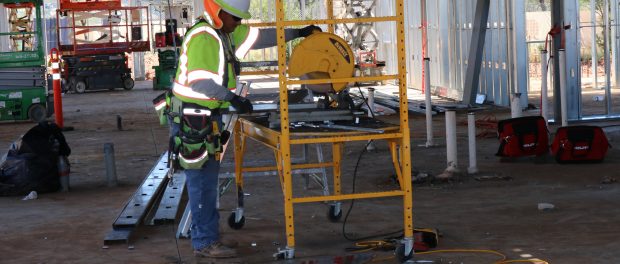A Building Crisis: UK Construction Workers Suicide Epidemic is a Quiet Danger

By Aaron Wilson, MD, Chief Medical Officer, Sierra Tucson
 In a profession where showing your vulnerability could be condemned as a weakness, it easy to see how the country’s construction industry suicide epidemic has burgeoned into what could be considered a modern-day behavioural health plague. The highest suicide rates of any profession, between 2011 and 2015, more than 1,400 UK construction workers took their own lives, according the Office of National Statistics.
In a profession where showing your vulnerability could be condemned as a weakness, it easy to see how the country’s construction industry suicide epidemic has burgeoned into what could be considered a modern-day behavioural health plague. The highest suicide rates of any profession, between 2011 and 2015, more than 1,400 UK construction workers took their own lives, according the Office of National Statistics.
For construction contractors and managers, who are beholden to their clients to provide spot-on estimates, economical sourcing of the right materials for the project, accurate supplies and necessary equipment, and precise scheduling to get the job done – all while managing stringent time-is-money deadlines, it’s no wonder that the emotional health of their workers may or may not be top-of-mind. The real question is what daily signs are being missed?
The signs:
- Chronic Tardiness/Absenteeism – Not being aware of responsibilities is common when individuals are depressed. Their world is closing in on them and what’s happening outside the confines of their world bears little consequence to them. Take note of those who are continually showing up late or racking up sick days.
- Isolating from Peers – When someone has a plan to withdraw from life, they often withdraw from others. They feel like a burden to their own family, friends and co-workers and develop a pervasive feeling that “everyone would be better off without me.”
- Increase in Alcohol and Substance Abuse – Too often individuals turn to drinking to self-medicate through hard times, or just to escape reality. With its sedative-like effects, alcohol can actually increase depression and lower inhibitions which can be a dangerous combination.
- Mood Swings/Changes in Behaviour – Mood swings happen, but extreme fluctuations and becoming quick to anger are sure signs of trouble. Be on the lookout for changes in how individuals react to seemingly small stressors. Men, especially, manifest their anguish and worry in the form of anger.
- Trouble on the Homefront – Oftentimes it is easier to hold it together at work than it is at home. When individuals experience more and more problems with a spouse that could be a sign that his/her life is unravelling.
- Inferior Work Performance – Perhaps there’s no more dangerous industry to work in when depressed than the construction industry. Working with heavy equipment and the responsibility for the safety of others is a big reason why employers need to be ultra-aware of their employees’ emotional state.
- Chronic Physical Pain – The spiral of substance abuse many times starts with the abuse of painkillers such as opioids. The physical labor associated with construction isn’t uncommon and your employees may be getting hooked on substances to help them survive their pain.
How to help:
- Create a Non-judgmental Atmosphere – There should be no shame in seeking help. Educate your team. Encourage them to come to you when they are stressed or need help.
- Confront the Issue – Don’t tiptoe around the problem. Instead, have direct conversations. Expect to hear denials or a minimisation of their woes, but keep digging.
- Stomp out the Stigma – Remove the perception that they will be admonished or shamed for their openness with you.
- Be Empathetic – Let your workers know that this is not going to end their career or damage your respect for them. Emotional pain is as real and as debilitating as physical pain – and often, more so when it comes to suicidal thoughts.
- Suggest Help – Have them consider seeing an EAP counsellor, therapist or even finding a residential treatment program. Professional are trained and ready to help. They can open the door to a new life.
